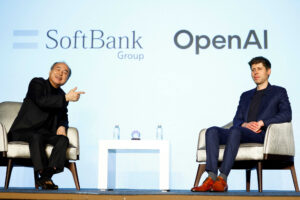
European markets were mixed as China growth came in as expected, leaving thinly traded preholiday markets looking for direction.
How did markets perform?
The Stoxx 600 SXXP, -0.18% fell 0.2% to 388.4, nearly erasing Tuesday’s 0.3% gain.
Italy’s FTSE MIB I945, +0.24% was a bright spot among regional indexes, rising 0.3% to 21,987.5 after climbing 0.1% Tuesday.
The euro EURUSD, +0.2836% rose 0.3% to $1.312. On Tuesday, it declined 0.1%.
Elsewhere the picture was mixed. In Germany, the DAX DAX, -0.04% DAX, +0.57% was flat at 12,100.3 following a positive day Tuesday where it increased 0.7%.
France’s CAC 40 PX1, +0.10% was up 0.1% to 5,532.2, adding to Tuesday’s gain of 0.4%.
The U.K.’s FTSE 100 UKX, -0.06% fell 0.1% to 7,459.1. It had risen 0.4% Tuesday.
The pound GBPUSD, -0.0920% was down 0.1% to $1.3043, on top of Tuesday’s 0.5% fall.
What’s moving the markets?
China’s economy grew 6.4% year over year in the first quarter, higher than the consensus of 6.3% and broadly positive in key areas such as industrial production and retail sales.
Neil Wilson, Chief Market Analyst for Markets.com, said: “Trump’s move to not raise tariffs in March seems to have made a big difference, as does government stimulus. Nevertheless, despite these better figures, we should remind ourselves that China is growing at its weakest pace in about three decades.”
The relative lack of movement in equities suggests markets were expecting the China result, leaving much of the activity in Europe to cluster around companies with earnings Wednesday.
Investors will be watching European corporate earnings including pharmaceutical company Roche Holding AG, French cosmetics company L’Oréal SA and Dutch chip maker ASML Holding NV. Much attention will likely be paid to forward guidance as to past performance, as market-watchers hunt for expectations of a global slowdown.
Bloomberg reported that European Central Bank policy makers are playing down the likelihood of the ECB exempting some bank deposits from the current negative interest rates. The potential move, which would be intended to stimulate bank lending if the European economy deteriorates, has emerged as a discussion point while ECB President Mario Draghi conducts an evaluation of the negative interest rate policy. But reports indicate that there is little appetite for the policy among ECB leaders.
In economic data, the U.K. saw a mixed picture as the Producer Price Index of output for March beat expectations with 2.4%, versus 2.1% predicted. However, the Office of National Statistics’ house price index for February saw a year-over-year increase of just 0.6%, after January’s 1.7% jump.
Which stocks are active?
U.K. outsourcing and food service equipment distributor Bunzl PLC BNZL, -8.90% saw a sharp decline of 10.8% after disappointing first-quarter earnings that showed higher revenues at actual exchange rates, but slowing underlying growth. The company announced its acquisition of Dutch firm Coolpack and indicated it was ready to consider further deals.
Swiss robotics firm ABB Ltd. ABBN, +5.27% rose 5.7% as its announced first-quarter earnings beat the consensus, despite declining revenue and increased orders. However, the focus was on interim CEO Ulrich Speisshofer,who mutually agreed with the board that he would step down. Speisshofer will be replaced for now by Peter Voser, formerly of Shell.
Swedish telecommunications group Telefonaktiebolaget LM Ericsson ERIC, +0.21% produced first-quarter earnings showing growth in networks revenue. CEO Börje Ekholm boasted of momentum from the introduction of 5G networks in the U.S. and South Korea, though speaking to CNBC he said large-scale rollout of the technology in China would come at the end of 2019, later than expected. Shares were up 3.8% Wednesday.
Providing critical information for the U.S. trading day. Subscribe to MarketWatch’s free Need to Know newsletter. Sign up here.







